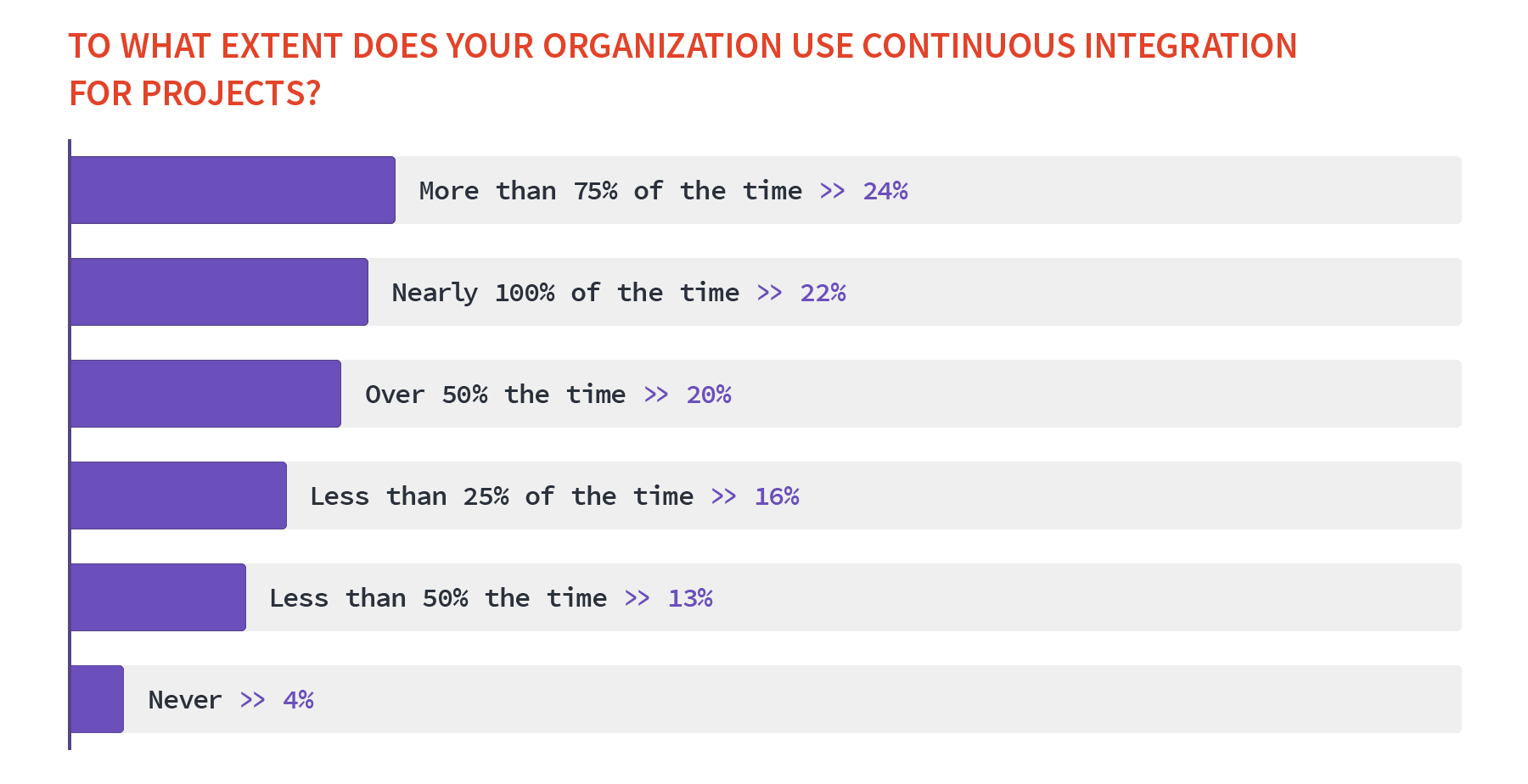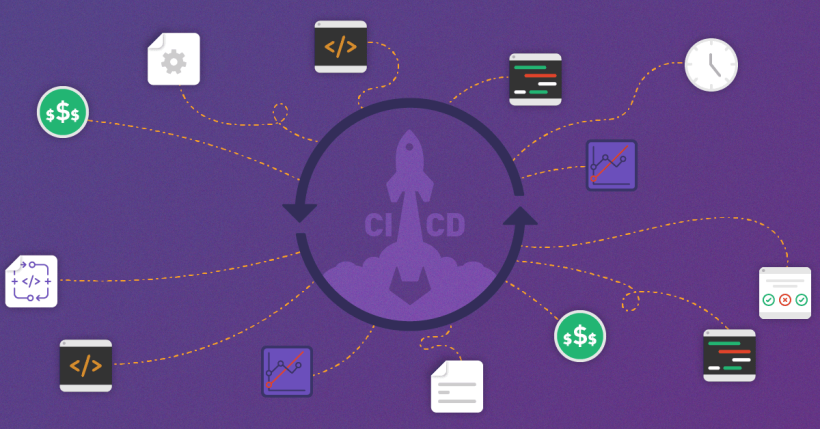What is continuous integration? Continuous integration is the practice that developers use to detect, locate and fix errors quickly by integrating their code frequently into a shared repository and is becoming a non-negotiable aspect of everyday work.
Continuous integration (CI) automates testing of new code, sparing developers the time-consuming task of checking it manually, and with increasing numbers of companies using this approach every day, CI is essential to staying competitive and to retaining your talent.
Our Global Developer Report was launched last year to explore the ways in which developers work is changing, and how you as a business can adapt to get the best out of your development team. With a developer-heavy sample (more than half of respondents identify as developer or engineer), the survey revealed some truths about what matters to developers, how they choose to work and what tools they choose to do it with. To see what our research revealed, you can download the full report to learn more about what today’s developers want.
One of the key takeaways from the survey is that continuous integration and continuous integration tools now plays a crucial part in daily work, and is becoming more and more important to delivering great features frequently. CI frees up time that would otherwise be spent on finding and fixing errors, and it decreases the chance of shipping code that isn’t ready.

CI is used by more than half of developers
DevOps continuous integration is becoming more mainstream. Developers are now using it more than 75 percent of the time. More than 20 percent use it nearly 100 percent of the time, with only 4 percent not using continuous integration at all. The trend is clear: Continuous integration is becoming increasingly important.
CI makes best use of your team’s time
There are many benefits of continuous integration. Deploying untested code means time is wasted on backtracking to find and fix bugs. Nearly 54 percent of our respondents work on a developer team of fewer than 10, so any resources spent on tasks that could be automated has a huge impact. Adopting continuous integration means new code is automatically tested for errors, so your developers spend less time on dull, manual testing and can focus on the work that inspires them – like building great new features.
77 percent of developers think CI is essential
They rated continuous integration and continuous integration tools as very or extremely important to their everyday work. If this trend is to continue, CI will soon be an essential element of your software development lifecycle, and companies that are resistant to adopting it may find their development team growing restless: 36 percent of developers said they would turn down a job if the company did not use the latest tools.
Continuous methods aren’t just for developers
We’ve come a long way since a release consisted of distributing CDs to retailers, and it’s not just developers who are changing their methods. The practice of working continuously – releasing in small, manageable iterations often and integrating feedback and changes frequently – is something everyone in a company can adopt, to work more efficiently and collaboratively. Watch our webcast to explore in more detail how the continuous approach can help you deliver customer value at the pace it takes to complete.
Watch our webcast From Continuous Integration to Continuous Everything Register here!
Tweet us @GitLab, check out our job openings, or add your questions and suggestions to our issue tracker!



